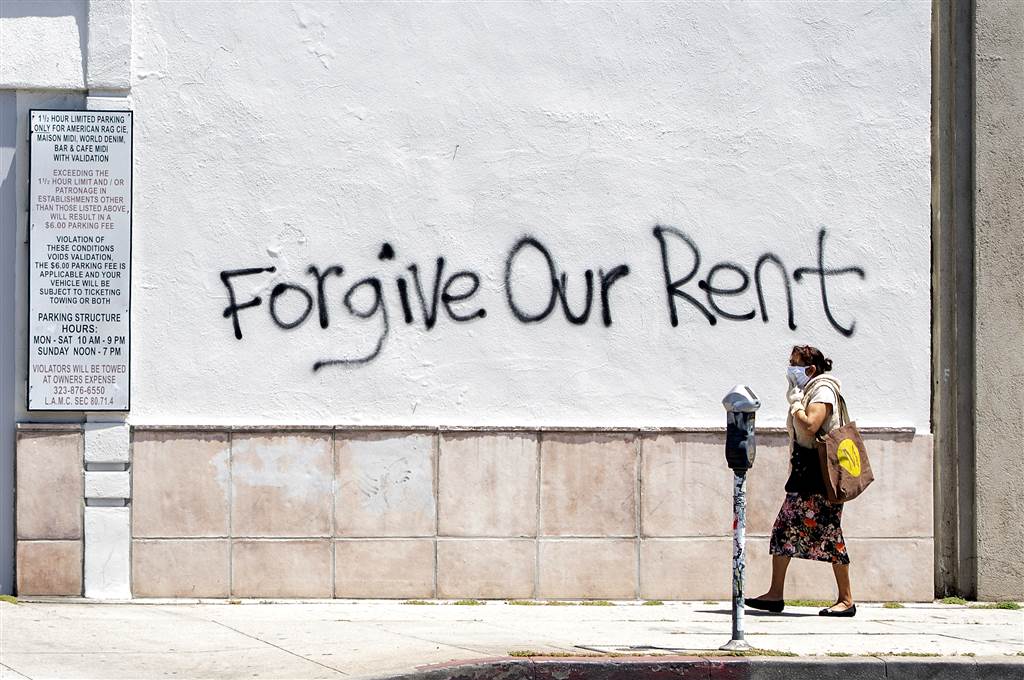
Safe and affordable housing is a basic human need and one that is vital during a public health crisis that cannot be brought under control if people do not have the ability to self-isolate when necessary. And yet for a huge swath of the American population, it is increasingly out of their grasp.
There is not a single state, county or metropolitan area in the U.S. where a minimum-wage worker can afford a modest two-bedroom rental without spending more than 30% of their income. And full-time minimum-wage workers cannot afford to rent a modest one-bedroom home in 95% of U.S. counties.
These bleak figures come from the “Out of Reach” report published Tuesday by the National Low Income Housing Coalition (NLIHC), which every year for the past three decades has revealed the increasingly stark mismatch between what people earn and the cost of a decent rental.
“What the report shows us is just how steep of an affordable challenge low-income renters had even before the coronavirus,” Diane Yentel, CEO of NLIHC, told HuffPost. “And it highlights the tremendous challenges that these same low-income renters face now during the coronavirus and its financial fallout.”
The report calculates a “housing wage,” which is the minimum a full-time worker must earn in order to afford to rent a modest one- or two-bedroom home without spending more than 30% of their income. Above that percentage, they are considered cost-burdened and therefore vulnerable to unexpected financial pressures. This vulnerability is exacerbated for the almost 8 million renters in America who spend more than 50% of their income on housing costs. Considered severely cost-burdened, they are forced to choose between housing and other basic needs, such as food, transportation and child care.
“When you have such limited income to begin with,” said Yentel, “and pay so much of it for your home, you’re always one emergency away from missing rent and facing potentially eviction and, in worst cases, homelessness. So for many of these renters, the coronavirus is that emergency.”
To afford a modest two-bedroom rental, according to the report, a full-time worker needs to earn $23.96 an hour, which is $16.71 above the federal minimum wage of $7.25. For a modest one-bedroom rental, a full-time worker must earn $19.56, or $12.31 above the federal minimum wage.
Some states have higher minimum wages, but even taking these into account, the average minimum wage worker would need to work nearly 97 hours a week (equivalent to more than two full-time jobs) to afford a two-bedroom rental, and 79 hours a week to affordably rent a one-bedroom.

It’s not just minimum-wage workers who are affected. The average renter earns $18.22 an hour, according to the report, which is less than what’s needed to afford a modest one- or two-bedroom home.
Particularly stark in the context of a pandemic is the fact that many essential workers don’t make nearly that much. Grocery store cashiers, for example, earn a median wage of $11.61 an hour, while home health and personal care aides earn $12.94, according to the report. Respectively, they would have to work 83 hours and 74 hours per week to afford a basic two-bedroom apartment.
“We know who the essential workers are,” said Sen. Sherrod Brown (D-Ohio) on a press call to discuss the report. “We know the anxiety they face at work, where they could get infected, and then we know the anxiety they face at home, when they’re with their families knowing they could spread the disease. Much of this is about housing. Much of this starts with housing.”
There is a huge variation in housing costs per region. The most affordable state is Arkansas, where the fair market rent for a modest two-bedroom is $738 a month, meaning a full-time worker needs to earn $14.19 an hour to afford it without spending more than 30% of their income. At the other end of the scale, in Hawaii, the fair market rent for a two-bedroom rental is $2,015, meaning a renter needs to earn $38.76 an hour.
In neither state is the rent affordable for a minimum-wage worker.
For the entire article go to: www.huffingtonpost.com










